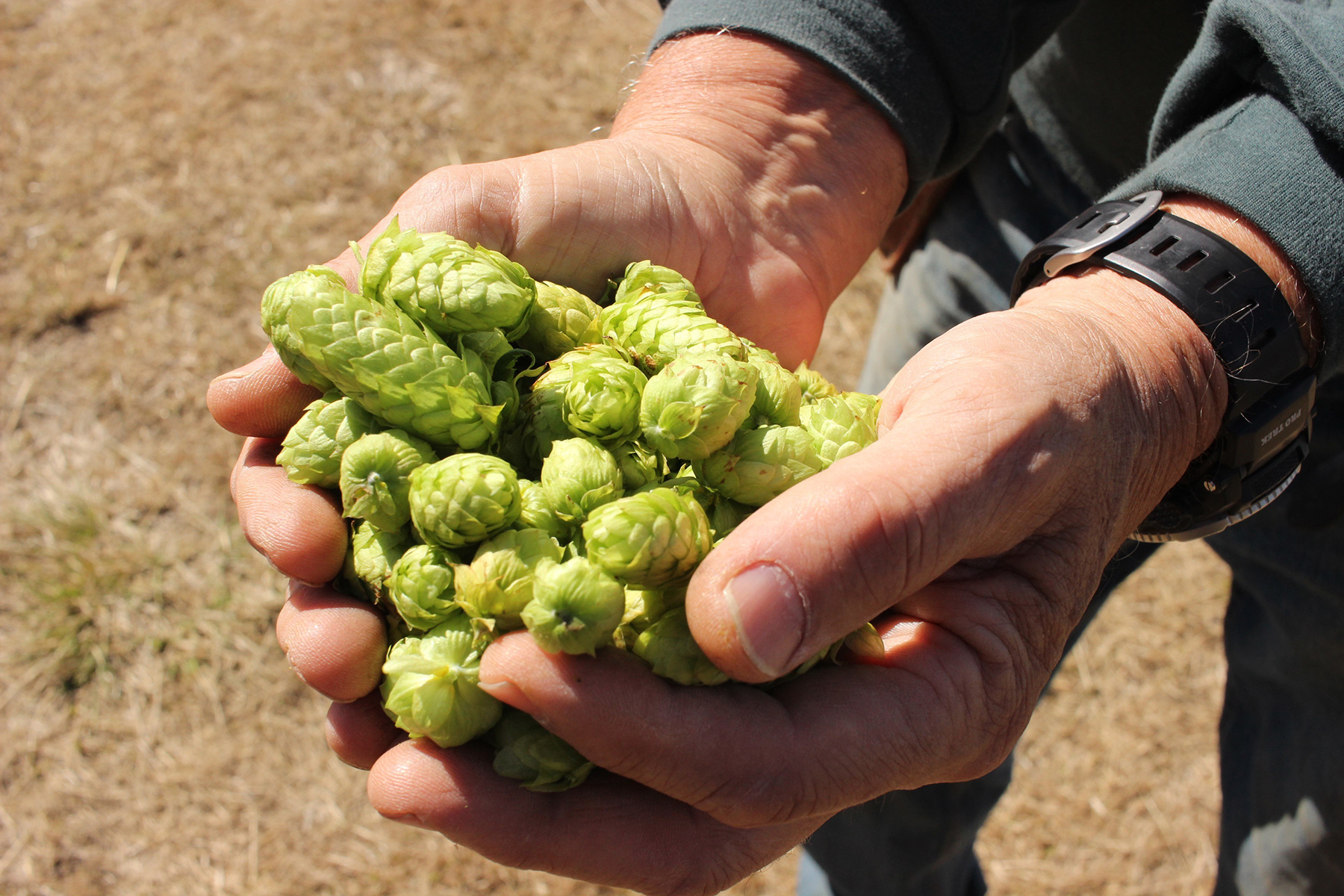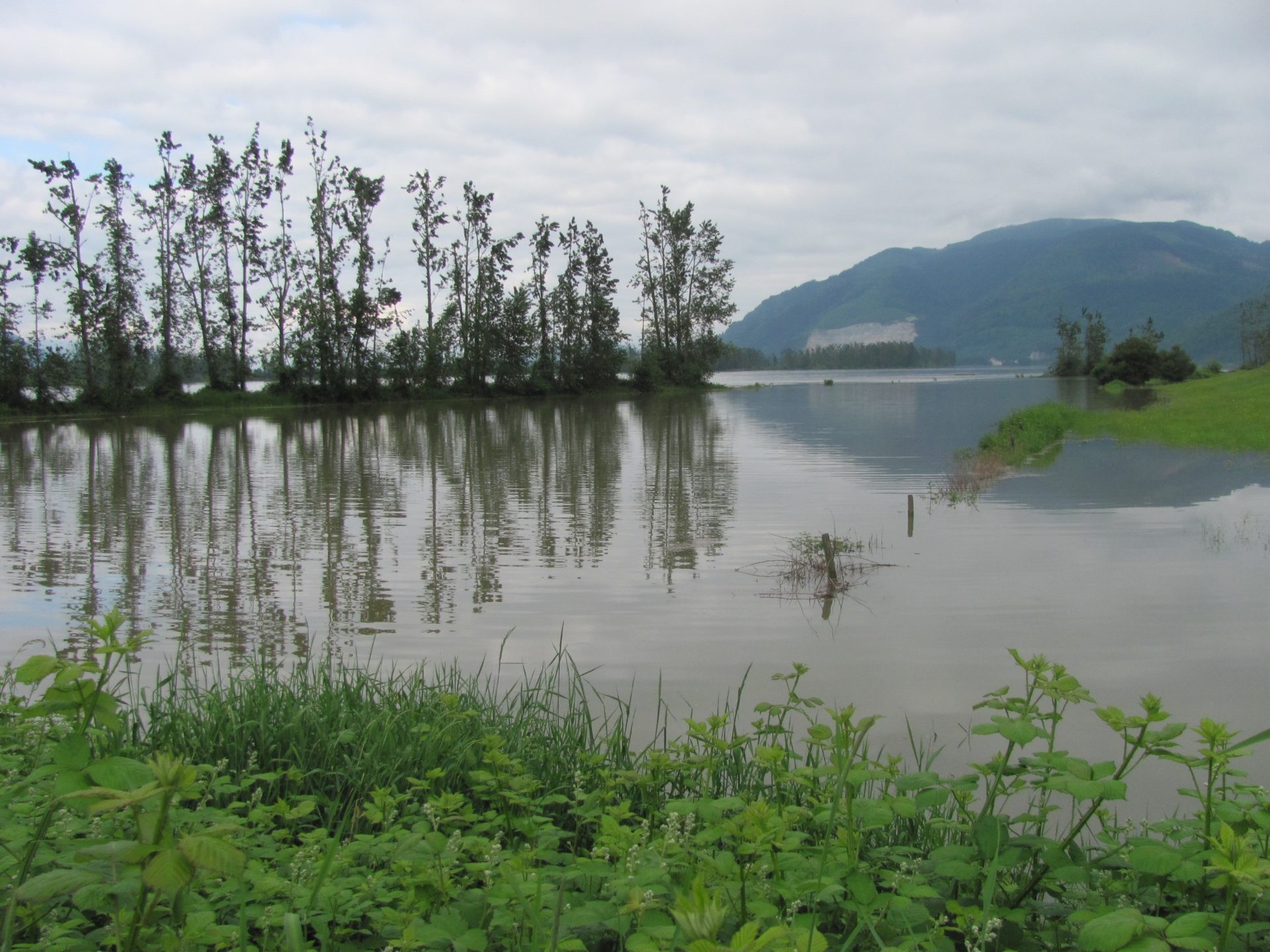CHILLIWACK – Fifty years ago, hops were a common sight across the central and eastern Fraser Valley with thousands of acres in production. About 20 years ago, the local industry ceased to exist as major brewers switched to lower-cost hops from the Yakima Valley.
In the past few years, however, hop production has returned to BC, driven by a surge in craft breweries not only in this province but all over North America. Rather than being dominated by one or two producers, the new hop industry is marked by small, independent growers still feeling their way.
“We all have a lot to learn,” says BC Hop Growers Association chair Ray Bredenhof.
That is one reason he and others formed the BCHGA a couple of years ago. The association hit the ground running, holding spring and fall field days and education seminars at the Pacific Agriculture Show. It also sent two directors to the Pest Management Regulatory Agency minor use initiative meeting in Quebec this spring and started working with government to develop a hop-specific crop insurance program and get hops included in the federal government’s Advance Payments Program, which provides loan guarantees.
The efforts appear to be paying off. PMRA approved funding for three of the hop growers’ “A-level priority” pesticides and government has promised that hops will be eligible for APP this year.
“BC hops are getting noticed internationally,” Bredenhof told the BCHGA’s annual meeting in Abbotsford, April 21. “We are now the largest hop-growing area in Canada.”
Just how large is anybody’s guess. That’s why a grower survey of both acreage and varieties is a priority for the BCHGA.
“The government needs hard numbers to work with us,” Bredenhof said.
Although hops have been promoted as an ideal crop for small acreages, he stresses that it’s not a get-rich-quick scheme, pointing out it has proven not to be a good crop for non-farmers. Just like most other crops, it needs good management as it is susceptible to a variety of pests and diseases. It is also susceptible to weather issues, which dominated the headlines last year.
“We had flooding followed by drought in the Interior and a wet spring which caused a lot of mildew in the Fraser Valley,” Bredenhof said.
Despite that, “we had a good quality crop last year,” he stated.
However, the challenges continued even after the crop was grown. Not only can growers lose a crop “in a few minutes” on the drying floor, but you can even lose the drying floor. Just three days into last fall’s harvest, Chilliwack Hops, the area’s largest grower-processor, lost its processing plant in a fire.
“We look forward to them rebuilding,” Bredenhof said.
Getting into hop production and processing can be a costly proposition but help is available, says Chris Clifford of RCAP Leasing, which offers lease financing for equipment. Previously known as MCAP, the company became a subsidiary of RBC Financial Group in 2010 and was rebranded.
RCAP will provide lease financing for up to 100% of the value of buildings and equipment, Clifford told growers. He explained that leasing is attractive option because it reduces large down payments and speeds up depreciation.
“Leasing is tailored for tax purposes,” he said, adding that payments can be seasonally adjusted so larger payments become due during and after harvest rather than in the spring and summer when cash flow is tighter.


